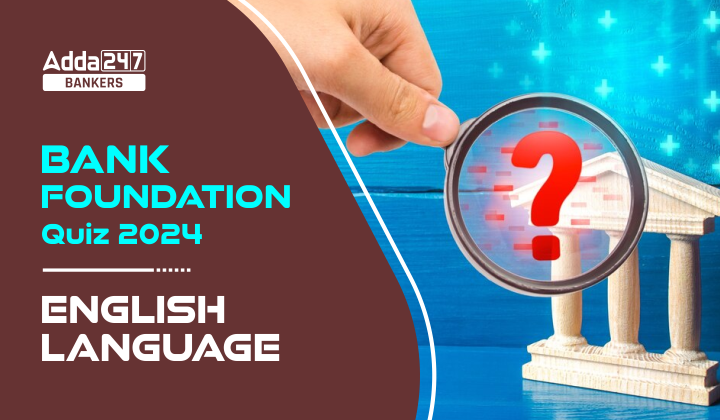Directions (1-5): Read the following passage carefully and answer the questions given below it.
The very shape of man’s body is such that makes him a restless creature. He cannot do without work. It is truly said, “An idle man’s brain is the devil’s workshop.”
The whole civilization of man has evolved itself only through hard work. All the inventions and discoveries of science are the result of hard work. Constant work improving upon its own findings progressively, has enabled man to tread on the moon.
Even in our daily life we see that hard work pays dividends. A student who works regularly and systematically shows better results than the one who does not do so. Similarly, a player who practices regularly on the field is much better than the other one. Work not only leads to better results in the long run, but also increases our self- confidence. Work may be physical or intellectual. It is important in all its forms. But it must be constructive. Great nations of the world like Japan, Germany and China have emerged strong only through hard work put in individually and collectively.
In India we worship lord Vishwakarma, the great god of the workers but unfortunately, we are a nation of shirkers. We work little and we work even less for our country. One can work better and more efficiently if one is dedicated to some cause. Let us all be dedicated to the cause of our country. Then we shall be able to make great sacrifices as our freedom fighters did. Only then we can see our country great and strong. And we ourselves can be great and strong only if our country is so. There is no short-cut, no escape route. Hard work is the only way out. In whatever field we are, we must do our duty with utmost devotion and conscientiousness.
Q1. Which one of the following messages the author wants to convey through the passage?
(a) Follow the tenets of Indian civilization
(b) Respect all the inventions and discoveries
(c) Follow the footsteps of great nations
(d) Word hard for individual and national glory
(e) Learn while you earn
Q2. What, according to the passage, is the cause of our self-confidence?
(a) Our physical disposition
(b) The work that we carry out
(c) The lessons we learnt from our civilization
(d) All the inventions and discoveries our ancestors have made
(e) Our inner abilities and active mind
Q3. What, according to the passage, is necessary for the effective work?
(a) Following the principles of good workmanship
(b) Maintaining a balance between ability and motivation
(c) Dedication of work to some cause
(d) Worship of Lord Vishwakarma with selfless devotion
(e) Not allowing mind to engage in dreamy thoughts
Q4. Which of the following group of words is SIMILAR in meaning to the word ‘dividend’ as used in the passage?
(a) Produce an advantage
(b) Useful in the past
(c) Produce indolence
(d) Motivate hard work
(e) Brings devotion and conscientiousness
Q5. What, according to the passage, is important with regard to the work that we get involved in?
(a) It does not lead to idle brain.
(b) It does not disturb the shape of our body.
(c) It facilitates our evolutionary process.
(d) It is constructive.
(e) It must have intellectual aspect.
Solutions:
S1. Ans. (d)
Sol. We can infer the answer from last sentence of the passage “In whatever field we are, we must do our duty with utmost devotion and conscientiousness.”
S2. Ans. (b)
Sol. Refer the fourth sentence of the third paragraph “Work not only leads to better results in the long run, but also increases our self- confidence.”
S3. Ans. (c)
Sol. Refer the third sentence of the last paragraph “One can work better and more efficiently if one is dedicated to some cause.”
S4. Ans. (a)
Sol. Dividend means sum of money paid or profit made by someone, which has similar meaning as ‘produce an advantage’.
S5. Ans. (d)
Sol. Refer the last few lines of the third paragraph “Work may be physical or intellectual. It is important in all its forms. But it must be constructive.”
. . .





 English Language Quiz For Bank Foundatio...
English Language Quiz For Bank Foundatio...
 English Language Quiz For Bank Mains Exa...
English Language Quiz For Bank Mains Exa...







